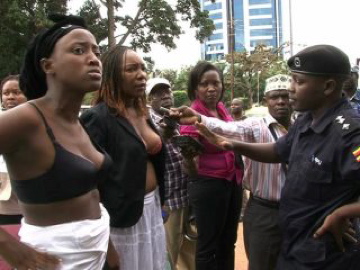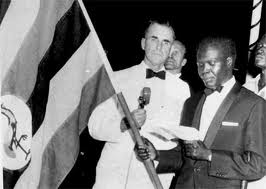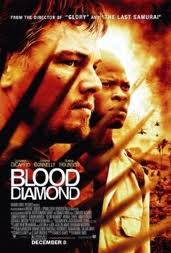There is a Madi saying that the water pot only breaks at the threshold. To the frustration of he or she who had braved the journey, balancing the cargo, seeking relief at reaching home. Long thirsty for a single victory, the Ugandan opposition has borne its hopes of claiming power one day like a heavy burden. Feet unsteady, outmatched in men and finances, but with their resolve intact, they have stumbled across the last three elections. Alas as the threshold came into view, whipped by the might of the incumbency of their opponent, their proverbial pot tumbled down into a thousand pieces. Still they gathered the pieces and moved on. These days the news is all about those little pieces of broken political pottery.
This morning a protest over the groping of Ingrid Turinawe a prominent women activist with the Forum for Democratic Change allegedly by policemen- a “breast strike” was held at Kampala’s main police station. Women in half dress briefly held the spotlight before being “arrested”. An African taboo, the undressing of old women is especially feared if done in distress. Its unclear what impact the bearing of the chest will have in the tussle between law enforcement officers and the local protest movement which has been in the media spotlight consistently since February last year.
The next Ugandan election is almost 4 years away but one would think the full term of the presidency is up. Since his re-election Mr. Museveni has faced crisis after crisis. Most of it not of his own making although he received personal criticism for drawing down the national foreign reserves to place an order for jet fighters. High inflation and food prices as well as power shortages have lit the road that the Opposition trekked in popular protests known as “ Walk to Work”. Non-stop negative coverage of government has dogged the ruling party on the back of a muscular response mainly by the Ugandan police. The “victim in chief” has been opposition leader Dr. Kizza Besigye.
However a climate of brawls has set in as protestors invent new tactics and a security establishment on steroids scavenges for fresh “lawful” ways to discourage it. The media too are headline stressed. It is the same story save for when something like “Booby-gate” pops up ( that’s what one journo called Turinawe’s shameful arrest. Another added ,tongue in cheek, that she wanted to milk the situation for all the media it was worth).
In the last weeks a poll, the Afrobarometer, which just a year ago had given the National Resistance Movement (NRM) high marks revealed a dramatic reversal in the ruling party’s fortunes. In January 2011 just before the election 64% of Ugandans thought the country was going in the right direction. A year later 74% said it was headed to bedlam. Candidate Museveni himself, a popular figure whose reputation has largely been immune from political mud fights has suffered his worst ratings in a decade. In 2000 Mr. Museveni’s approval rating was 83%. Its down to 58% in 2012 with Parliament exceeding the Presidency for the first time as the most trusted institution ( at 67%) according to Afrobarometer.
More to point perception that the Presidency has been soiled by the 24-hour news cycle on grand corruption is emerging. Since re-election a former Vice President has been to jail, one minister resigned and several implicated in alleged corrupt dealings. About 10% more people think that most or all officials in the Presidents office are corrupt. Political in-fighting within the ruling party saw a majority “cross to the opposition” in the dramatic oil debates of late 2011 that also witnessed a historic recall of the House.
Perhaps most importantly there has been a surge in support for the return of presidential term limits. These were removed with the return of multiparty competition through a controversial constitutional amendment in 2005. Last week at an Afrobarometer event NRM Deputy Spokesman Ofwono Opondo, who doubles as an internal critic of his party, said if an election were held today the NRM would still win. Perhaps.
Today the governing organs of the NRM are meeting to, according to insiders, debate two issues primarily, re-organising the party leadership ( read the internal succession) and term limits ( the public political transition debate).
Leading public figures in the opposition like celebrity lawmaker Mp Gerald Karuhanga have launched a popular movement to “restore” term limits to the constitution. That the move through a private members bill is gathering steam is perhaps a sign of the times.But it is a re-tell of how the Opposition has seen the victory pot slip through its fingers unto the rough floor of history. While a legitimate issue the returning of term limits can only provide a pyrrhic victory for the opposition. One miscalculation on their part is that the ruling party is bound to oppose the move to bring back term limits. This won’t happen. In the present climate the NRM is likely to become a major champion of term limits. One recalls a similar moment in the history of the NRM’s transfiguration from movement to political party in 2005. At the time pressure to bring back open party competition was at its height. Mr. Museveni whose nine political lives baffle his detractors and admirers alike put the issue to a referendum or if you like a countrywide poll. Rather than support the no-party democracy line (parties had been banned since he took power in 1986) he backed their return. It was a major move for which the opposition at the time was unprepared.
That episode of his serial terms ended with the constitutional amendments that abolished term limits entirely. As this issue again matures into a major political moment in the next months and forward into the next election the NRM is likely to go for the 87% who desire a two term limit.
Along the way the party and its leader will gain some pragmatic pickings.
Firstly since the restoration of term limits cannot apply retrospectively if leaves Mr. Museveni’s numerous “terms” unaffected. This means he can run again for two more terms officially. Secondly according to some NRM supporters the restoration should include an extension of the Presidential term from five to seven years meaning that theoretically Mr. Museveni could be around for 14 more years if he chose ( a total of 40 if one can imagine it).
Perhaps ironically all this is possible because the Opposition in their moment have made it so.
It is unlikely that the Opposition (or the NRM) can abandon the subject now. The political tango they have been engaged in for the last decade and half the emphasis often conflated regime change with political change or transformation. Recent history of the longevity in power of political actors, parties or individuals, shows that at some point incumbency exhausts the electorate.
That was the lesson from Senegal and before that of Tunisia and Egypt. On a more positive note maybe the restoration of term limits itself will inject some certainty in what has been a very turbulent political season and provide new parameters on the question of political transition. As this water pot journeys its cracks itch with the last fall.










